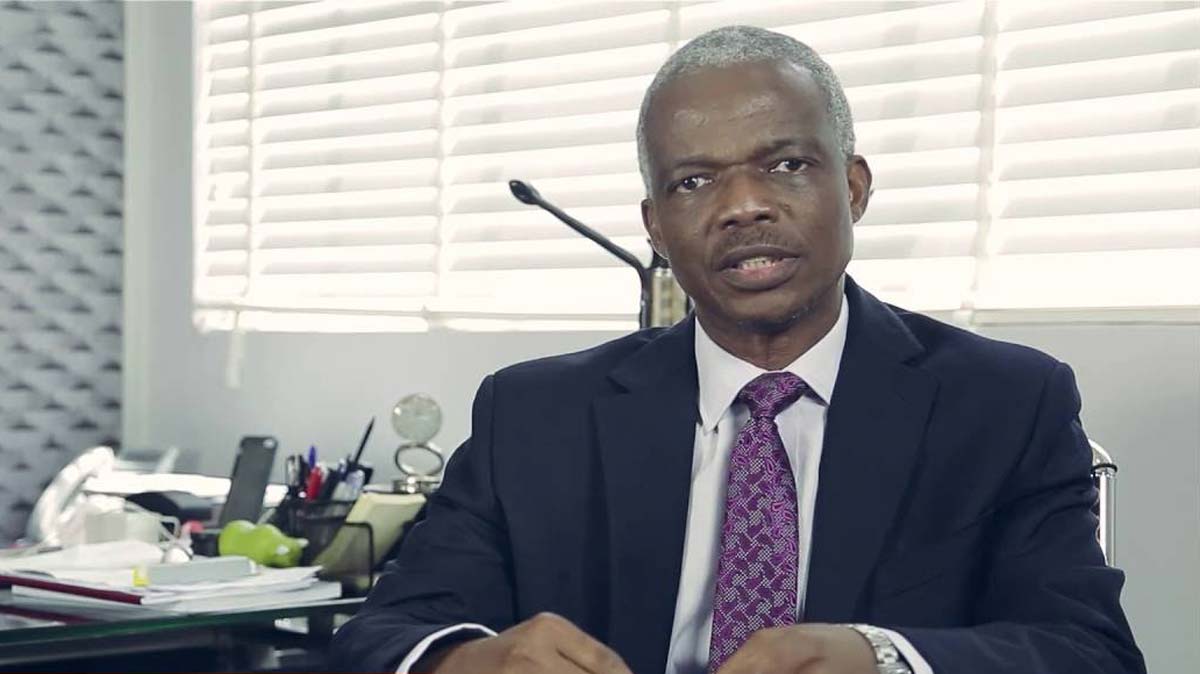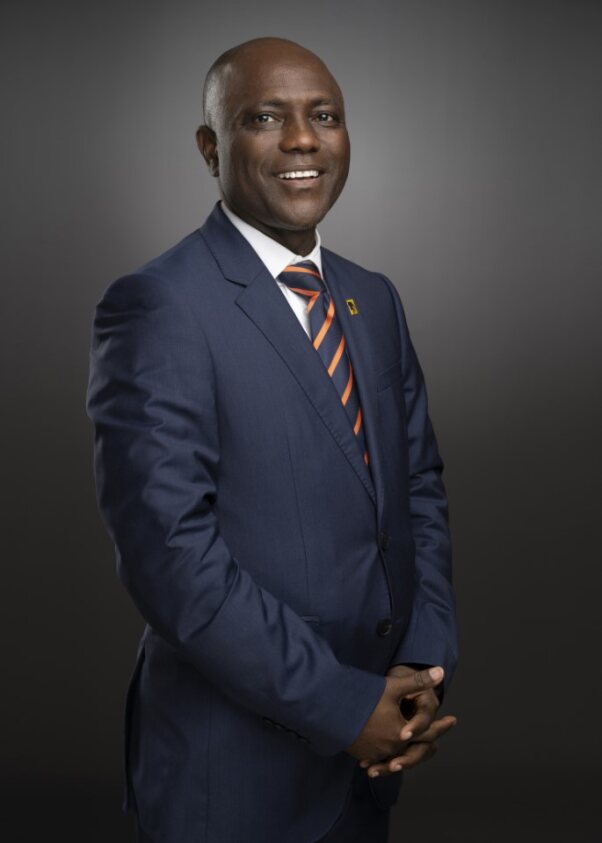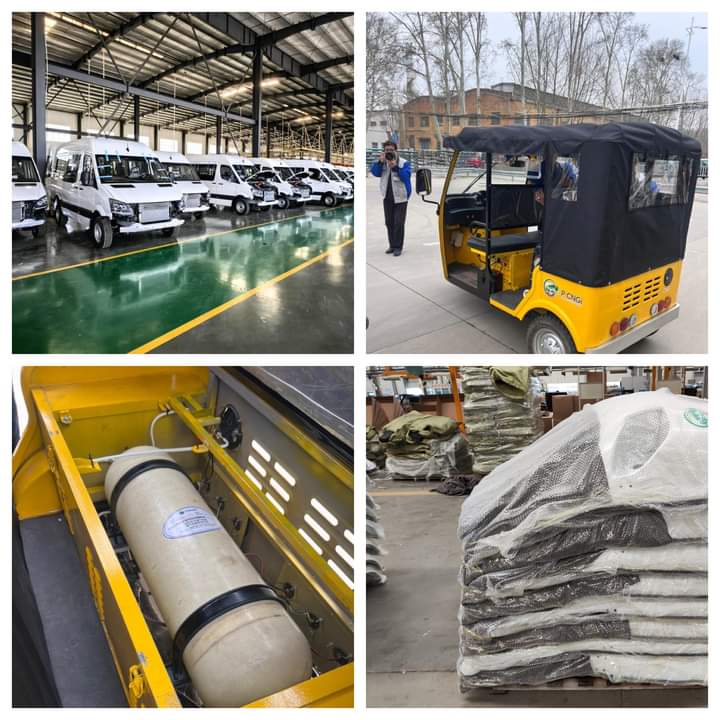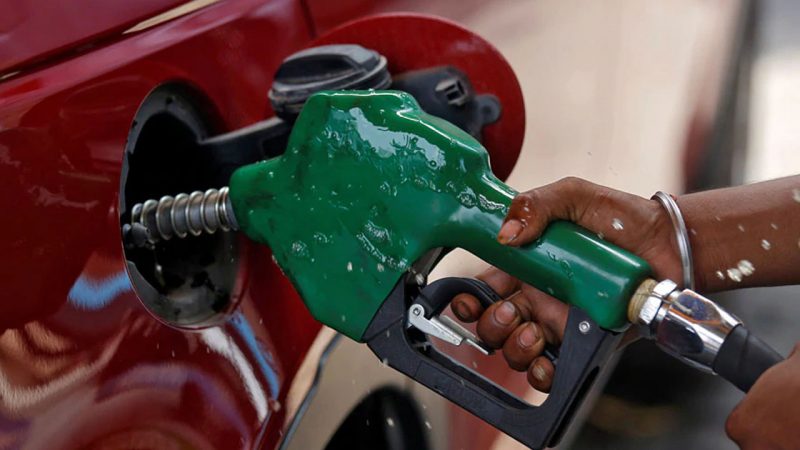Business
Nigeria spent N1.85tn on food import in nine months – Buhari economic aide

A total of N1.85 trillion was spent by Nigeria on import food for nine months during the closure of international land borders last year, President Muhammadu Buhari’s chief economic adviser, Dr Doyon Salami, has said.
He said this was an indication that the nation lacked the capacity to feed itself.
Salami, an ex-member of the Central Bank of Nigeria (CBN) Monetary Policy Committee (MPC), is the Chairman of the Presidential Economic Advisory Council.
He spoke at the presentation of the National Economic Outlook for 2021 organised virtually by the Chartered Institute of Bankers of Nigeria (CIBN) on Tuesday in Lagos.
He said, “Despite border closure, our national import of food amounted to N1.85 trillion between January and Sept 2020 – a 62 per cent increase when compared to same period 2019. This suggests a weakness in our ability to feed ourselves and raises the need to consider review of intervention policies in agriculture.”
He said agriculture had continued to decelerate, growing at 1.7 per cent year-to-date while consumer-sensitive sectors like manufacturing and distribution continue to contract, in double digits.
According to him, serious climatic concerns are undermining agricultural output with 2.5 million farmers being impacted by flooding in 2019.
He noted that preliminary assessments suggested that 2020 was worse with persistence into 2021 to adversely affect output and food prices.
Salami said during the period, Nigeria’s cumulative trade deficit amounts to N4.6 trillion ($12 billion).
He said Nigeria’s external imbalances were increasingly precarious, with continuing concern over exchange rate differentials.
He said uncertainty around foreign exchange – convergence, market-reflective rates and transparent determination mechanism, balance of payment imbalances were large and would remain key questions in 2021.
Salami said by the measure driving the value of the naira based on the naira/dollar inflation differential, the currency, should be trading around N439/$ at the official market.
The agricultural sector, ICT, real estate and oil and gas are vulnerable to a probable major adjustment to the foreign exchange rate, according to him.
Salami said official payment data showed that about $30 billion (almost 10 per cent of national economy) was obtained from sources outside the CBN, adding that the gap between the official and other exchange rates was a source for concern.
He said the COVID-19 shock of 2020 represented the third major shock to the Nigerian economy in 12 years.
He noted that ahead of the crisis, the Nigerian economy was contending with a set of pre-existing conditions such as macro Instability, stagflation – slow growth and rising inflation, pressure on households – in the form of rising inflation, unemployment, and poverty and pressure on corporate(s) margins – weak consumer and cost pressures.
He said there were also growing fiscal and external imbalances, monetary Policy distortions – the bifurcation of sovereign instruments leading to a distortion of the interest rate term structure.
Salami stated that with the impact of COVID-19, prices continued to rise – at the end of November 2020, overall inflation was 14.8 per cent with food prices increasing at 18.3 per cent when compared with November, 2019.
He, however, noted that the stay-at-home imposition implied greater use of telco/tech communication platforms.
“A health crisis morphed into an economic crisis resulting in humanitarian and in some cases, security challenges, a global development visiting great disruption to established norms – largely negative short-term impact but some positives – especially with technology deployment, the full impact of which will manifest in the years ahead,” he stated.
The international economic environment, he said, deteriorated sharply last year but recovery expected in this year, based on the capacity to suppress the virus through vaccination.
He also said transport and hospitality sectors were gravely affected by the lockdowns of April/May as well as by voluntary containment measures and/or imposed restrictions post-lockdown.
President/Chairman CIBN, Mr Bayo Olugbemi, represented by second Vice President Prof. Pius Olanrewaju, said the National Economic Outlook initiated in 2014 was designed to bring together relevant stakeholders together to discuss emerging and pertinent issues facing national and global economies and their implications for businesses.
Business
Olusegun Alebiosu named acting Chief Executive of FBN

Olusegun Alebiosu named acting Chief Executive of FBN
FBN Holdings Plc has named Mr Olusegun Alebiosu as acting Chief Executive of the First Bank of Nigeria Limited (FirstBank), its flagship subsidiary.
This is coming after the recent resignation of the bank’s Managing Director/Chief Executive, Dr Adesola Adeduntan.
This is contained in a statement to the Nigerian Stock Exchange, signed by the holdings’ acting Company Secretary, Adewale Arogundade.
It said the appointment taking immediate effect would be subject to the approval of the Central Bank of Nigeria (CBN).
The statement added that the announcement was in accordance with the Rulebook of The Exchange (Issuers’ Rules), which required that the Nigerian Exchange Limited and the investing public be duly notified of such development.
Alebiosu was an Executive Director/Chief Risk Officer who jointly led the transformation of FirstBank over the past eight years, and was an integral member of the team under the previous CEO’s leadership.
He joined FirstBank in 2016 and has over three decades of banking experience.
“The Board of Directors expressed gratitude to Adeduntan for his exemplary leadership in the last nine years during which he superintended the transformation and growth of the bank and wish him well in his future endeavours,” the statement added.
The new acting First Bank CEO commenced his professional career in 1991 with Oceanic Bank Plc (now EcoBank Plc).
Prior to joining FirstBank in 2016, he had served as Chief Risk Officer at Coronation Merchant Bank Limited, Chief Credit Risk Officer at African Development Bank Group, and Group Head, Credit Policy and Deputy Chief Credit Risk Officer at United Bank for Africa Plc.
He is an alumnus of Harvard School of Government and holds a bachelor’s degree in Industrial Relations and Personnel Management.
Alebiosu also obtained a master’s degree in International Law and Diplomacy from the University of Lagos and holds a master’s degree in Development Studies from the London School of Economics and Political Science.
Auto
FG to roll out 200 CNG buses, 2,500 tricycles next month

FG to roll out 200 CNG buses, 2,500 tricycles next month
- Targets one million automobiles
The Federal Government says it will unveil its first set of Compressed Natural Gas (CNG) vehicles and tricycles for mass transit next month (May 2024), as part of activities to mark President Bola Tinubu’s one year in office.
Special Adviser to the President on Information and Strategy, Bayo Onanuga, in a statement on Sunday said 200 buses and 2,500 tricycles powered by CNG would be unveiled.
He said the buses and tricycles would be rolled out with a set target of one million CNG-powered automobiles by 2027.
He said the committee led by Michael Oluwagbemi was set to deliver cheaper, safer and more climate-friendly energy vehicles.
Onanuga said the committee had fulfilled some foundational reforms to enable the new CNG and electric vehicles to deliver the future Tinubu promised.
He added that all was ready for delivery of the first set of critical assets for deployment and launch of the vehicles ahead of the first anniversary of the Tinubu administration on May 29.
Onanuga also said, “In collaboration with the private sector, the PCNGI is set to deliver 100 conversion workshops and 60 refuelling sites spread across 18 states before the end of this year.”
The Federal Government provided N100 billion, as part of the N500 billion palliative budget, to purchase 5,500 CNG vehicles, being part of the many intervention programmes to cushion the effect of increase in petrol pump price on the masses.
This included buses and tricycles, 100 electric buses and over 20,000 CNG conversion kits, with the development of CNG refilling stations and electric charging stations.
Onanuga said with necessary tax and duty waivers approved by Tinubu in December 2023, the private sector partners in the Presidential CNG Initiative (PCNGI) had responded with over $50 million investments in refuelling stations and conversion centres
He stated, “Also, a safety policy document on 80 standards and regulations that must be strictly adhered to by operators has been developed and approved to ensure CNG conversions are done safely and reliably.
“The deployment of CNG buses and tricycles and the vision to get at least one million natural gas propelled vehicles on our roads by 2027 will mark a major energy transition in our country’s transportation industry.
Onanuga also said, “Four plants owned by JET, Mikano, Mojo, and Brilliant EV located in various parts of the country are involved in the assembly of the Semi Knocked Down (SKD) components of the CNG buses.
“JET, which has received the SKD parts, is coupling the buses in Lagos and is working towards delivering 200 units before the first anniversary of the Tinubu administration.
“Brilliant EV will assemble electric vehicles. It is awaiting the SKD parts, which will arrive in due course. The electric vehicles it will produce are meant for states, such as Kano and Borno, which do not have access to CNG for now.
“They will also be available in key Nigerian cities and university campuses.
“It must be noted that soon to be completed gas pipeline projects initiated by the Buhari administration and being completed by NNPCL (the AKK Pipeline) will take gas into the hinterlands of North-East and North-West where there is current paucity.”
He said over 600 buses were targeted for production in the first phase this year while a new plant on the Lagos-Ibadan Expressway would assemble thousands of tricycles.
“The SKD parts manufactured by the Chinese company LUOJIA in partnership with its local partner to support the consortium of local suppliers of CNG tricycles are set for shipment to Nigeria and expected to arrive early in May. About 2,500 of the tricycles will be ready before May 29, 2024.
“Thousands of conversion kits for petrol powered buses and taxis that want to migrate to CNG are also ready with CNG cylinders.
“The Federal government intends to provide them at subsidised rates, especially to commercial vehicle drivers to bring down the cost of public transportation.”
As part of private sector collaboration, NIPCO and BOVAS are involved in offering refilling services for the CNG vehicles and also serving as conversion centres.
NIPCO is setting up 32 stations nationwide to offer the services. The company has completed the set-up of four of the CNG stations.
“Likewise, BOVAS is setting up eight stations in Ibadan, two each in Ekiti, Abuja and four in Ilorin.
“MRS is also involved. It is making efforts to announce where its refilling stations and conversion centres will be,” Onanuga added.
He also said NNPC Limited, which had launched an on-and-off CNG initiative in the past, was joining the new initiative and expected to announce the locations for CNG refilling and CNG conversion centres nationwide.
The statement said PCNGI was working with 22 other agency-partners, including the Standards Organisation of Nigeria (SON) and National Automotive Design and Development Council, to deliver 80 Natural Gas Vehicle Conversion and Associated Appliances Standards for the country.
He added that the vision of the President to deliver one million gas vehicles could not be possible without the private sector, including the RTEAN, NURTW and players in the downstream sector of the transportation chain and financiers.
Business
Fuel price set to drop as marketers prepare loading from PH refinery @ N500/litre

Fuel price set to drop as marketers prepare loading from PH refinery @ N500/litre
There are indications that petrol price will drop soon at filling stations across the country as marketers are set to start loading the product from the rehabilitated Port Harbour refinery.
Many marketers are expecting to receive the fuel at N500/litre, going by a new report by Sunday Punch.
Currently, Newstrends reports that imported petrol is being sold in different parts of the country between N568/litre and N680/litre, depending on the city and its distance to the deport of loading.
Already, workers at the Port Harcourt refinery are said to be set for production on the directives of the Nigerian National Petroleum Company Limited.
Dealers confirmed on Friday that the PHRC was almost set to start releasing products, projecting a N500/litre price for Premium Motor Spirit, popularly called petrol, from the Port Harcourt refinery in Rivers State.
They also expressed optimism that the Dangote Petroleum Refinery would crash PMS price below N500/litre when it starts releasing products. Dangote refinery is projected to start supplying petrol to the market in May, as it currently supplies diesel to dealers.
On Thursday, it was reported that operators under the aegis of the Independent Petroleum Marketers Association of Nigeria, Rivers State Branch, told our correspondent that they paid a visit to the Port Harcourt refinery and found out that the plant might start releasing refined petroleum products this month.
This, according to them, was because the plant had been largely completed, a development that was confirmed on Friday by the National Public Relations Officer, IPMAN, Chief Ukadike Chinedu.
According to the IPMAN PRO, marketers, particularly independent dealers, have started making plans on how to purchase and load products from the refinery, adding that operators are optimistic about a price reduction from the refinery.
Asked whether the refinery has put a price on the PMS to expect from the plant, Ukadike replied, “Not yet. However, NNPC is still giving us PMS at N567.7/litre, so we want to believe that the Port Harcourt refinery should give us the product at N500/litre or less than that.”
Ukadike stated efforts were really ongoing at the plant to begin the production of petrol and other refined products, as recently announced by the NNPC.
READ ALSO:
- Ondo: Sport commissioner ‘assaults’ NAN journalist during APC primary
- Why we charge N42m fees for primary school pupils — Charterhouse Lagos
- Environmental Pollution: Lagos seals RCCG
On March 15, 2024, it was reported that the Group Chief Executive Officer, NNPC Ltd, Mele Kyari, stated that the Port Harcourt refinery would commence operations in about two weeks.
He also stated that mechanical works had been completed on the Port Harcourt, Warri, and Kaduna refineries, stressing that the Kaduna refinery would commence operations in December.
The NNPC boss had disclosed this during a press briefing after he appeared before the Senate Ad-hoc Committee investigating the various Turn Around Maintenance projects of the country’s refineries.
He said, “We did a mechanical completion of the refinery that was what we said in December. We now have crude oil already stocked in the refinery. We are doing regulatory compliance tests that must happen in every refinery before you start it, and I assure you that this Port Harcourt refinery will start in the next two weeks.
“Completing the mechanical work means that you are done with the rehabilitation work, now you have to test to see how it works. Of course, we have also completed the mechanical work on the Warri refinery. It is also undergoing regulatory compliance; processes that we are doing with our regulator and this will soon be completed and it will be ready.
“Kaduna refinery will be ready by December. We have not reached that stage in Kaduna, but we promise Kaduna will be delivered by December.”
Kyari had also told the Senate that over 450,000 barrels of oil had been stocked into the Port Harcourt refinery.
Meanwhile, Ukadike also told our correspondent on Friday that marketers were putting in place measures that would enable them to purchase products in bulk, going by the fact that the Dangote Petroleum Refinery did not sell less than one million litres when it commenced the sale of diesel.
“So when they resume at Port Harcourt refinery and they key into what Dangote has done by selling in bulk, it means that we the independent marketers particularly in the South-East should be able to have a company that can be able to buy up to four/five million litres from the refinery.
“We are also planning to reach NNPC Trading to see whether they will be able to send 20,000 metric tonnes of PMS to our depots, strictly for independent marketers.
READ ALSO:
- JUST IN : Borrow pit collapses, kills seven Qur’anic school pupils
- Tragedy as man slumps, dies while trying to bail 2 sons at police station
- We expect massive roll-outs of Nigeria-made cars by December 2024 – Minister
“From every indication, the Port Harcourt refinery is almost set to start releasing products. The government has told us that the plant will start production, at least by the end of this month. So we don’t want to be caught unprepared, for instance, if they say we should pay for two million litres and we can’t be able to pay,” the IPMAN official stated.
Ukadike also stated that oil marketers were discussing with their banks, adding that the financial institutions “are ready to fund such bulk allocations so that we can be able to distribute it nationwide because we have the reach.”
The Port Harcourt Branch Chairman, IPMAN, Tekena Ikpaki, had earlier told our correspondent that the management of the Port Harcourt refinery had assured dealers that the plant would begin operations soon, as operators in Rivers State were set to take product from the facility.
Dangote may crash prices
The oil dealers are also awaiting the potential entry of PMS from the Dangote refinery into the domestic market, with hopes that the company would crash the price of petrol below N500/litre.
The anticipation stemmed from the manners in which the Dangote refinery recently crashed the price of diesel to N1,200/litre in March when the cost of the commodity was around N1,600. The refinery later crashed the price of diesel to N1,000/litre.
The National President, IPMAN, Abubakar Maigandi, said the refinery might sell petrol at N500/litre or below.
Linking this to the rebound of the naira against the dollar, Maigandi told one of our correspondents that the product might be sold at a relatively cheaper price.
READ ALSO:
- Ondo APC primary: Ododo, gov aspirant in open confrontation
- Don’t let them get to me through you, Portable warns wife
- N50,000 presidential grant: 100,000 small businesses benefit in first phase
While saying the refinery is yet to begin the sale of petrol, the IPMAN president noted: “We are happy the price of diesel is coming down, thanks to Dangote refinery. As for petrol, the sale has not started. We hope petrol too will come down to like N500.
“But if the dollar continues falling, it may go back to the normal rate”.
However, the Major Energies Marketers Association of Nigeria said the PMS from the Dangote refinery would be sold at the import parity rate.
The Executive Secretary of MEMAN, Clement Isong, said, “I expect the price to be at import parity. Why (will it go down to N500 or low)? Petrol pricing is at the international price. It is based on an international reference. You buy petrol based on a willing-seller, willing-buyer basis,” Isong said in a telephone conversation.
Meanwhile, the Chief Executive Officer of Dangote Group Aliko Dangote, has hinted that in few days diesel will be sold at N1000 nationwide, adding that profiteers overtime have benefitted from the astronomic rise.
Dangote made this disclosure in Gombe while fielding answers to journalists shortly after attending nuptial ceremony.
He said, “Some persons have held the business for a very long time; they were profiteering but we decided that we can afford to sell it at N1000 which is 60 per cent drop. Areas like here (Gombe), Borno, Bauchi it was selling for N1,700 – N1,800 but right now in the next few days, you will not buy diesel for more than N1000 anywhere in Nigeria.”
Fuel price set to drop as marketers prepare loading from PH refinery @ N500/litre
PUNCH
-

 Education2 days ago
Education2 days agoWhy we charge N42m fees for primary school pupils — Charterhouse Lagos
-

 International7 days ago
International7 days agoMuslim student loses High Court challenge against Michaela School’s prayer ban
-

 Business6 days ago
Business6 days agoGovt paying N600bn for fuel subsidy monthly — Rainoil CEO
-

 News4 days ago
News4 days agoUpdated: More trouble for Yahaya Bello as Immigration places him on watch list
-

 Auto3 days ago
Auto3 days agoWe expect massive roll-outs of Nigeria-made cars by December 2024 – Minister
-

 News7 days ago
News7 days agoUS-based Nigerian Chidozie, shot by wife, dies 18 days after
-

 News6 days ago
News6 days agoIMF predicts 3.3% growth for Nigeria’s economy in 2024
-

 News2 days ago
News2 days agoWe’re not part of Yoruba Nation agitation, says MKO Abiola family














You must be logged in to post a comment Login